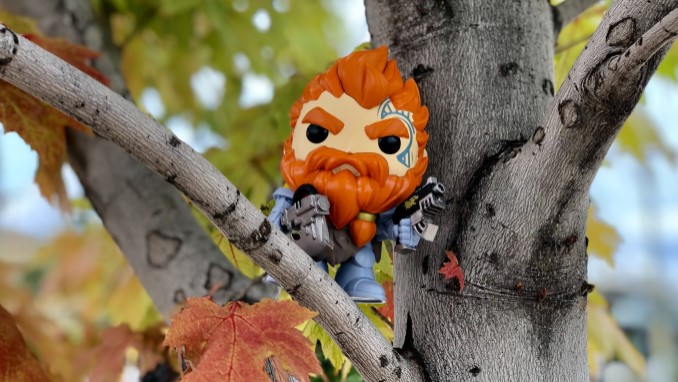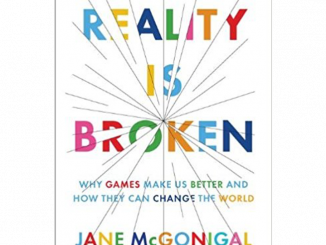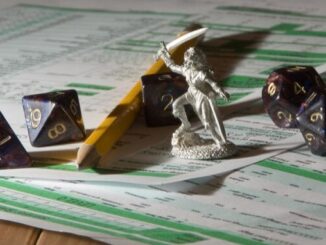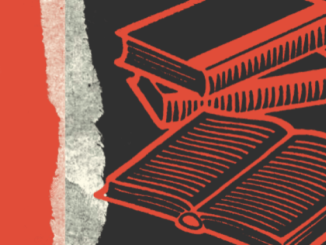
This evening, me and mine are in for a treat, that we’ve been looking forward to for weeks. In this age of streaming, today’s release of the feature length finale episodes of ‘Stranger Things’ is the closest you get to appointment TV.
I love everything about this show, from the storylines, through the uncompromising female characters (especially the totally wonderful Erica), to the game that we who were there (in the 80s) can play, spotting the numerous visual references to films and TV from the era. School corridors shot from the same angle and with the same lighting as Nightmare on Elm Street, Teen Wolf basketball moments etc.
But what I love most of all is reliving my early monster-slaying days – not in the Upside Down, but on numerous kitchen tables and student bedsit floors. I even remember playing a few adventures featuring a Demogorgon, which as any schoolchild knows (if they have a copy of the Monster Manual, or the Deities and Demigods cyclopedia), is a Demon Lord from the Abyss, worshipped by the Ixitxachitl.
The Deities and Demigods cyclopedia is available on Amazon
And the stats mattered… so much. Even when not playing, there were deep discussions about all the numbers. Adventures were remembered and analysed not just as pieces of narrative, but as mathematical representations of an experience. Did this encounter yield too many (or too few) XP? Is that piece of equipment or spell over-powered? Should I distribute points to my character attributes differently to get the best from my character?
I still play, we I can find the time myself, and more importantly, when I can find others who also have the time (and inclination) to play a campaign. Like many adults who have an RPG past, I’ve tried the (easier) option of joining MMORPGs like World of Warcraft, but it’s not the same. Someone else has created the experience for me, and I am more a consumer than a creator. I want to feel the D20 in my hand, and experience the thrill of creating a story with others around a table while quaffing mead (or Thunderbird – being the closest proxy which the local beer-off could provide).

While D&D is not a Quantified Self (QS) game as such – you’re not playing yourself, for one thing – the mechanisms and experiences within RPGs have definitely informed the QS movement. This has not gone unnoticed and there are many RPG-flavoured QS and self-improvement apps and games out there.
Here are a selected few:
Chore Wars
Gain experience points for housework. This was a firm favourite in our house when my girls were a bit younger, and having just sparked it up after a few years away (for the purposes of writing this article), my younger daughter is showing every sign of wanting to start playing again.
This game allows you to create character with all the stats of a D&D character – strength, constitution, charisma etc., who can gain experience points (XP) and level up (at every 200 XP) through carrying out domestic chores. A Dungeon Master (DM) account allows you to create adventures and quests. Adventures are recurring tasks which can be claimed by a character each time they are performed, while quests disappear after being claimed once.
When creating an adventure / quest, a DM can name and describe it, as well as applying XP (usually the no. of minutes it takes to perform the task), the gold and treasure that may be found (and %age chance), and monsters that may need to be battled. They also specify which of the character stats is used in the task and at what level (low, medium, high).
Gold, treasure and monsters are largely window dressing that add to the RPG feel, although you could ‘spend’ gold on real-world treats, once you have accumulated enough – likewise with treasure effects. The character stats feature is the most interesting. On levelling up, your characters stats will be adjusted up, and, unusually for an RPG, down, depending on the adventures you have undertaken. This, to me, is the most QS aspect of this game, because it helps you to see how well you are balancing different types of activities.
I’m now chuckling at some of the treasure and monsters we came up with creating adventures back in 2011. For doing guitar practice, for example, my elder daughter had a 60% chance of discovering a Map of Carnegie Hall, and a 33% chance of encountering a Plectrum-spitting Tuna
Not to be confused with….
BBC Women’s Hour Chore Wars
Which was a survey carried out to discover the split between men and women in terms of who does the most household chores. The survey is no longer available, but you can still see a broadbrush overview of its findings.
SuperBetter
Jane McGonigal sustained a concussion in 2009, after hitting her head at work. Recovery was slow, and Jane suffered from suicidal thoughts during this time. As a game designer, she decided to create a game which would help her to recover and build resilience, and ‘Jane the Concussion Slayer’ was born.
This was later renamed Superbetter, and now exists as an app and website which uses evidence-based approaches to building resilience and aiding recovery from challenges.
Players are encouraged to specify their Epic Win and the Goal that win will help them to achieve. There is plenty of help to get you there, and the app presents you with daily challenges which will slowly but surely move you towards your Epic Win. You can enlist the help of Allies – people who will support you during your journey, and use Power-ups – quick and easy actions which will give you an instant boost. There is recognition that it won’t all be plain sailing, as Bad Guys, like persistent thought, or bad habits are there to get in your way. Superbetter also encourages you to list your Future Boosts – things that you have to look forward to.

Like Chore Wars, you are able to select predetermined ‘programmes’, or, more usefully, to create and edit your own entries for all elements of your Superbetter journey.
Jane McGonigal’s second book, also called Superbetter, details the creation of this game. It is available from Amazon.
Habitica
Back in 2012, I was busy working on the design of Habitochi, a habit-breaking / forming app based on Tamagotchi. Sadly, it never got beyond the design stage, ironically, probably, because of my own inability to maintain the habit of working slowly and steadily towards raising the funds to build it. It’s still a possibility, if anyone is interested, but, several people have beat me to it – including Blobby, MOTi, DailyPet, and indeed Habitica, to a certain extent. I’m not one for sour grapes, though, even though all of these post-date the Habitochi concept – that’s entirely my fault.
Habitochi is still a better name than any of these, though, right?
Habitica allows you personify (monsterify?) all your tasks, which can be habits, regular e.g. daily task, or to-dos into monsters which you have to fight.
It includes many of the features of RPGs which are the things which keep us playing. Doing what you should – regular maintenance of your habit, ticking of your to-dos will enable you to upgrade your avatar with cool new armour and other stuff. Not doing so will mean that you start to move backwards, and in particular it will start to damage your health. There is also the (highly) rewarding feature of random reward – the psychological strategy which underlies gambling addiction, and keeps up killing monsters in RPGs because we never know whether the next looted body will turn up some knackered leather boots or a mithril broadsword (yeah, right!).

There are also pets, and social challenges (*mumbles sub-audibly about Habitochi*)
But what is really interesting about Habitica, in terms of presenting a variety of ideas in this article, is that it is an open-source project, which means that it has a dazzling array of integrations with 3rd party tools, some of which measure and track (the usual thing that people think of when hearing ‘Quantified Self’). Habitica can be integrated with e.g. Trello, Cloudflare Workers, Zapier etc.
Fill your (seven-league) boots!
Life RPG
I have become (sometimes, painfully) aware throughout life that not everyone is as interested in Dungeons (or, indeed, Dragons), as I am. If you have been reading this, and thinking, ‘I can see how this might work, but I can’t be doing with all the sword ‘n’ sorcery shizzle’, then LifeRPG is probably more up your (non-magical) street. It strips away a lot of the narrative while retaining the basic mechanics that help you to get (mundane) stuff done.
It is also, arguably, the most customisable of the solutions presented here. I would say that this has most in common with productivity apps, and co-opts the idea of XP to add that extra bit of motivation to ticking off the tasks and projects.
Some of the game-like features included in this app are:
Categorising projects by difficulty, importance, and by assigning a Skill to each one, enabling you to further ‘gamify’ your prioritisation. ‘Eat that Frog’, anyone?
Levelling up. Like any other RPG, XP allows you to level up. In LifeRPG there is not cap on the level you can achieve, you can enter your own title to go with your level.
Skill Stats. If you (optionally) assign skills to tasks and projects, those skills will be improved when you complete tasks. This allows you to see life areas (Stats) where you are performing well, and others which are lagging, indicating that you could do with more practice.
Momentum Bar – measuring your ‘stick-at-itness’. Your momentum bar will drop each day unless you recharge it by completing tasks.
Aside the game mechanics, LifeRPG also contains some useful features for a productivity app, including different databases for different contexts, e.g. work projects and home projects, and a project log.
Do-It-Yourself
These are the solutions which others have created for you, and which in many cases, have stood the test of time, and have thousands of raving fans. But what if you want to really customise your game of life. Several Game designers and productivity experts have proposed that you design your own games to do this. I have already written one article this month about Yu-kai Chou’s Real-life RPG ideas, now known as 10,000 Hours of Play.

In addition, here is a great resource from Reddit detailing a simple ‘Player Guide’, to create your fully-customised life game.
I am also working on Character and Quest design templates – owing a lot to Steve Jackson’s GURPS system, which will be posted here in Ludogogy as soon as they are done. These are geared towards achieving medium and long-term goals by focusing on attributes and skills (and mini-quests) needed to achieve them.
What Next?
Many of the apps and games mentioned here have been around a while, as RPGs themselves have been, so will we be seeing anything new from the genre. Well, yes. At least I think so. RPGs have been undergoing some changes recently, as I wrote about in Learning Powered by the Apocalypse.
These are RPGs without the stats and numbers, so perhaps the next step is the ‘Qualified Self’ (not to be confused with the ideas in the book of the same name by Lee Humphrys, which is about social media sharing of mundane everyday life details). Maybe the new kinds of RPGs can help us to learn about the qualities of our lives, rather than the quantities, relying more on creating narrative and eliciting emotions, than creating measurable data.
A game to play to explore this idea would be Logan, where the player gets to experience their own version of a series of events that actually happened in the game designer’s life – a game play experience that is at once empathetic and self-reflective.
- James Bore – The Ransomeware Game - 13th February 2024
- Ipsodeckso – Risky Business - 23rd January 2024
- Review – Luma World Games - 15th December 2023





Be the first to comment